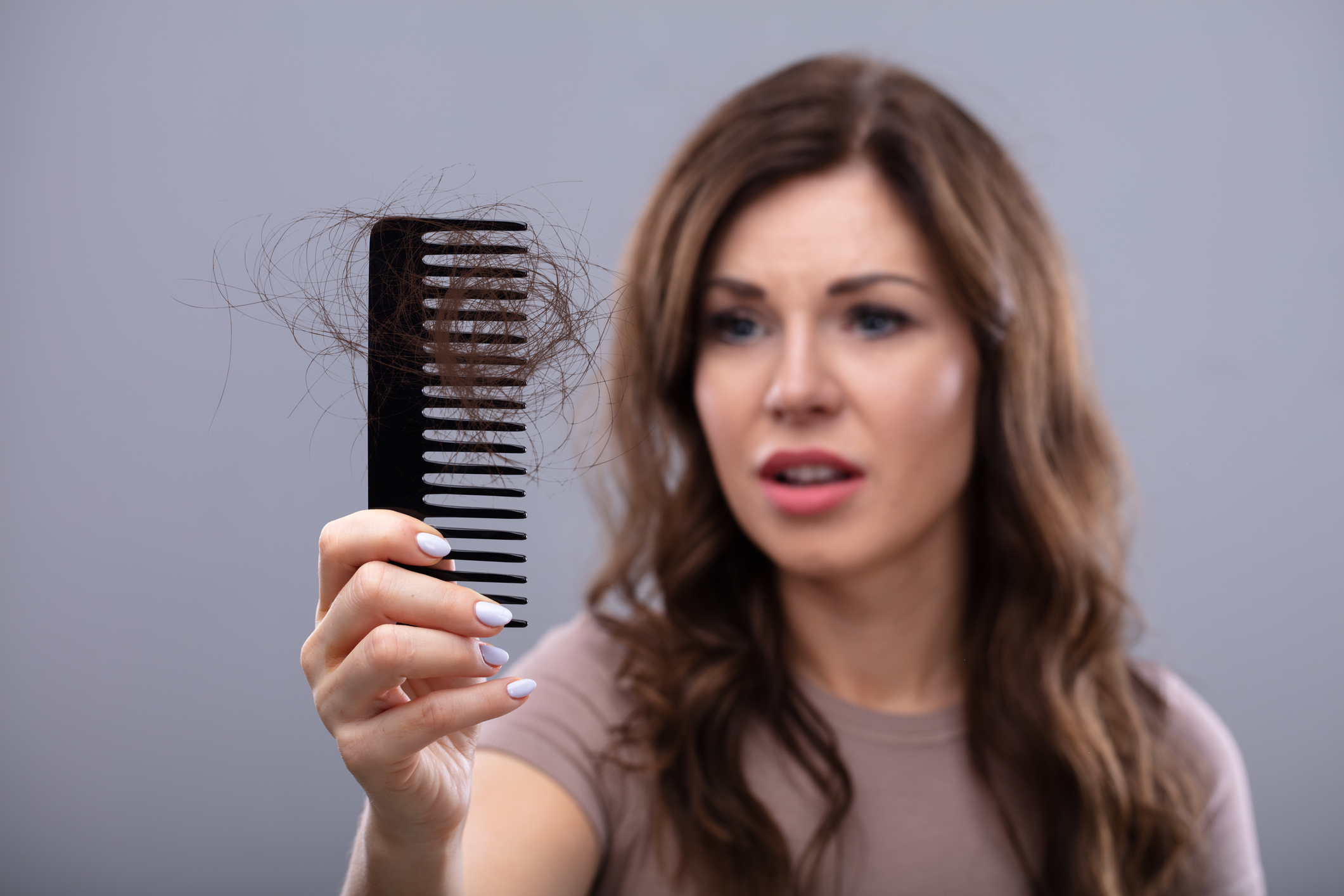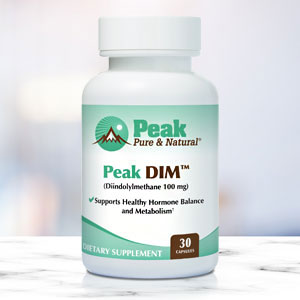Get Easy Health Digest™ in your inbox and don’t miss a thing when you subscribe today. Plus, get the free bonus report, Mother Nature’s Tips, Tricks and Remedies for Cholesterol, Blood Pressure & Blood Sugar as my way of saying welcome to the community!
10 surprising things that cause hair loss

There’s been a running joke in my family for years, about how none of us will ever go bald. Even at 100 years old, my mother has a thick head of hair, and my sister and I both do as well.
Still, lately, I’ve had to buy a catch for my tub so that my hair doesn’t clog up the drain when I shower. And if I comb my hair the wrong way, there’s some scalp showing.
Aging is not automatically accompanied by hair loss. But there are lifestyle and other factors that could cause you to see more hair in your hairbrush than you’re used to. I was surprised to find that several of these may be behind my own hair loss.
10 things that can cause hair loss
Medications. Blood thinners, acne medications high in vitamin A, anabolic steroids, medications for arthritis, depression, gout, heart problems, or high blood pressure are just some of the drugs that may cause hair loss.
Low iron. Iron helps keep your hair healthy. If your iron levels are too low – even if you’re not anemic – you may start losing hair. Other clues that you’re low on iron to look for are brittle nails, pale skin, shortness of breath, weakness and a rapid heartbeat.
Stress. High stress can make your immune system turn on itself. When this happens, it can attack your hair follicles. Also, periods of stress can actually pause your hair growth, which makes hair more likely to come out when you brush it.
Weight loss surgery. After bariatric surgery, it’s common to lose some hair, especially if your zinc levels are low.
You don’t get enough protein. When your body is low on protein, it will conserve it wherever it can, and that includes stopping your hair from growing. A few months later, if low protein intake is still an issue, you’ll start to see hair falling out.
You’re hard on your hair. Using too much shampoo, brushing your hair when it’s wet, rubbing too hard with a towel, brushing too hard, or braiding hair too tightly all can cause hair to break and fall out.
Heat and dyes. Using a blow dryer or flat iron every day to style your hair will dry it out, making it easier to break and fall out. The same goes for bleach, dye, relaxers and hair spray.
Other health conditions. More than thirty diseases include hair loss on their list of symptoms. Some examples are polycystic ovary syndrome, thyroid disorders, and autoimmune diseases, as well as ringworm of the scalp. Even a persistent high fever can cause hair loss. Most recently hair loss has been added to the list of symptoms attributed to long COVID, the phenomenon that can follow infection with the virus that causes COVID-19.
Smoking. This one may surprise you, but it shouldn’t. The toxins in cigarette smoke can harm your hair follicles as much as they can other parts of you, causing a slowdown in hair growth and hair loss.
Menopause. The shifting of hormones during menopause can cause hair to shed. This usually resolves within about six months. If you notice your part widening, or start losing hair at the top and crown of the head, you may have female pattern baldness. Minoxidil has been shown to help, but if you stop applying it to an affected area, the balding will begin again.
Editor’s note: Did you know that when you take your body from acid to alkaline you can boost your energy, lose weight, soothe digestion, avoid illness and achieve wellness? Click here to discover The Alkaline Secret to Ultimate Vitality and revive your life today!
Sources:














